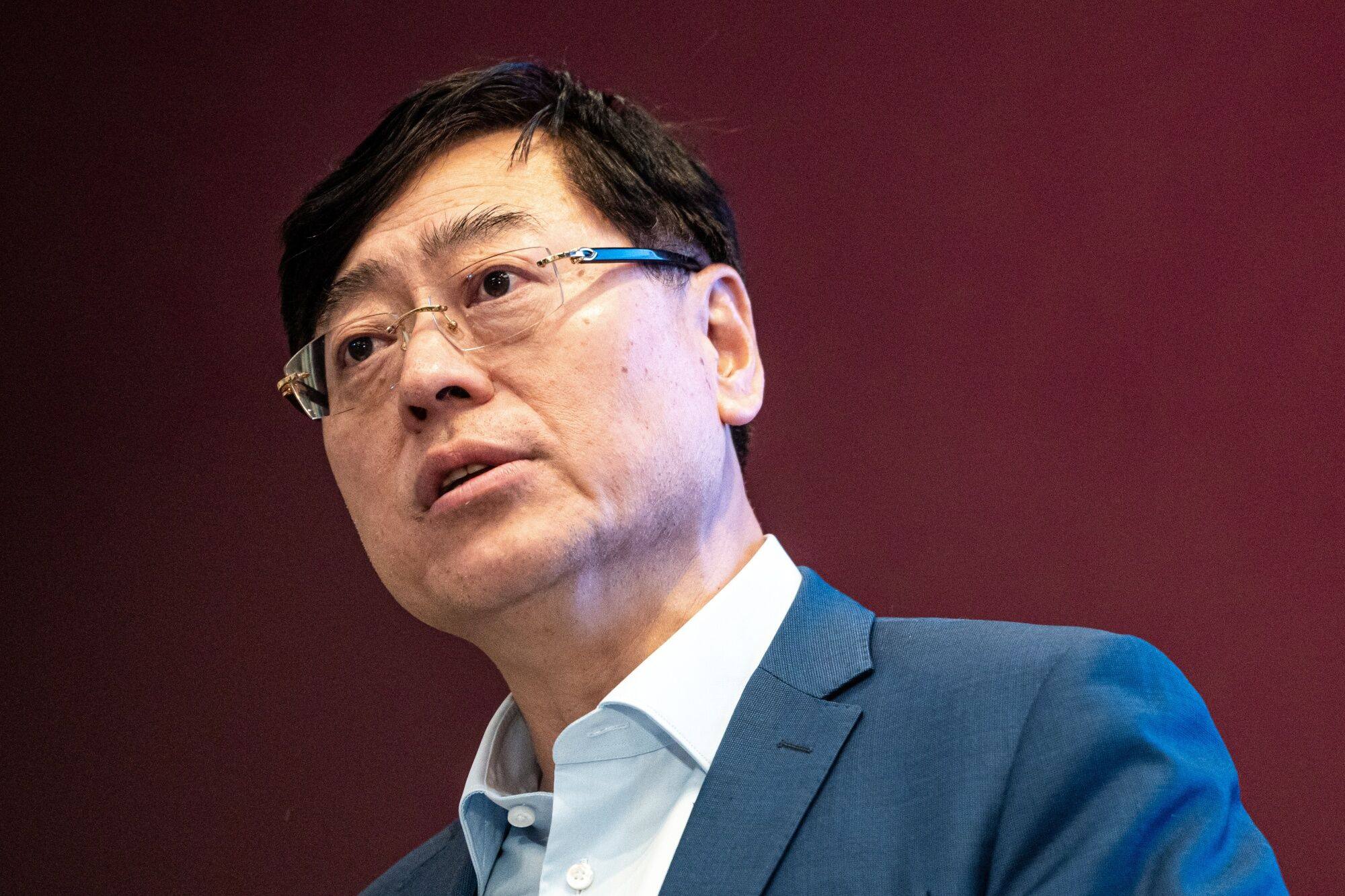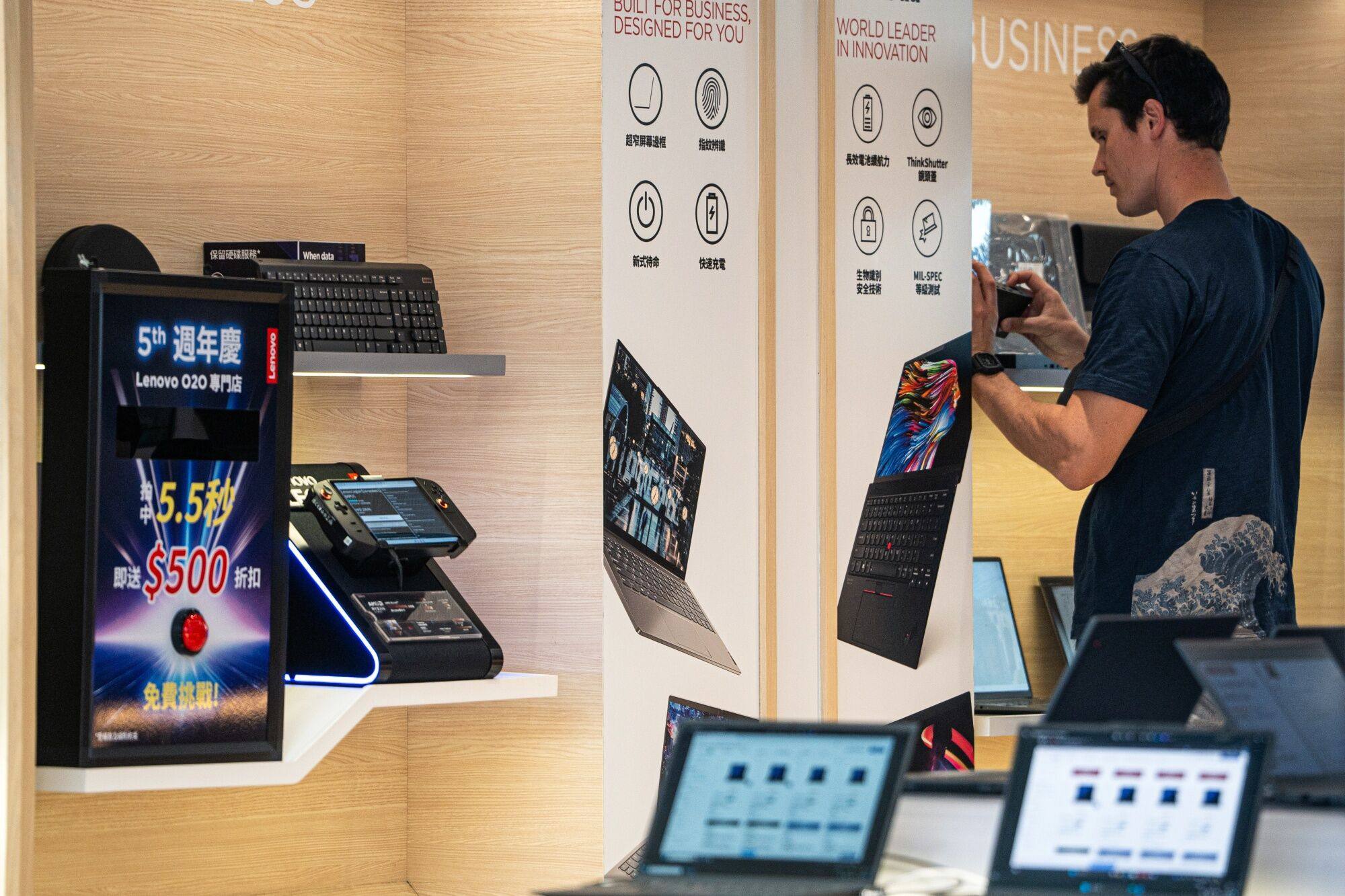
Lenovo beats expectations on revenue, profit in March quarter, eyes AI PCs for future growth
- Net income doubled to US$248 million year on year, beating the US$158.4 million average estimate of analysts, according to Lenovo’s latest earnings call
- The company is working with Microsoft and Qualcomm on a new lineup of laptops with an ARM-based chip specifically designed for AI tasks
Lenovo Group, the world’s largest personal computer (PC) maker, reported a 9 per cent year-on-year increase in revenue for the March quarter, marking its second consecutive quarterly revenue growth.
The company, with dual headquarters in Beijing and Raleigh in North Carolina, posted a better-than-expected quarterly revenue of US$13.8 billion, exceeding the estimated US$13.09 billion consensus figure from analysts surveyed by Bloomberg.
It marks Lenovo’s second consecutive quarter of growth after suffering declines since late 2022 due to the post-pandemic global demand slowdown.
Net income doubled to US$248 million year on year, beating the US$158.4 million average estimate of analysts, according to Lenovo’s latest earnings call
Meanwhile, the company’s revenue for the full year ended March 31 fell 8 per cent to US$56.9 billion, which slightly exceeded analysts’ forecast of US$56.19 billion.
The company is enhancing its focus on artificial intelligence (AI), particularly on AI PCs, referring to laptops and desktop computers embedded with native generative AI functions.
“We are particularly excited about the huge growth opportunities brought by AI devices, starting from the AI PC,” Yang Yuanqing, chairman and CEO of Lenovo Group, said during the call, adding that he expected the total PC market volume will recover to pre-Covid-19 levels.

“We expect that in the next three years AI PCs will gradually grow from premium to a mainstream segment, driving a new refresh cycle in the PC market,” Yang said.
With AI PC products starting to ship this month, Luca Rossi, president of the intelligence devices group of Lenovo, said the company is expected to accelerate the process in the second half of 2024, and would achieve stronger growth in shipments in 2025 and 2026.
The company is working with Microsoft and Qualcomm on a new lineup of laptops with an ARM-based chip specifically designed for AI tasks.
Lenovo reported a strong quarterly performance in its infrastructure solutions group (ISG), which provides servers and networking equipment to businesses.
The ISG reported US$2.5 billion in revenue for the March quarter, up 15 per cent compared to the same period last year, on higher demand for AI infrastructure amid the growing popularity of generative AI. The storage, software and services businesses all achieved high growth, with their combined revenue up more than 50 per cent year on year.

However, this business unit reported a 9 per cent revenue drop for the full year due to the impact of the shortage of AI graphics processing unit (GPU) chips, and weaker spending on non-AI equipment. But the company noted that “the [GPU] supply gap showed signs of narrowing”.
“Looking ahead, AI servers are expected to grow twice as fast as the broader server market and Lenovo will capture this growth opportunity by broadening our portfolio and converting its extensive pipeline to revenues,” Yang said.

